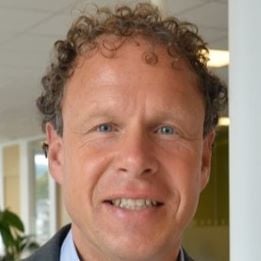

General counsel | Vygruppen AS



Otto S. Roheim
General counsel | Vygruppen AS
Team size: 7
What are the key projects that you have been involved in over the past 12 months?
The two most important projects over the past 12 months have been the incorporation of Flytoget AS as a company in Vygruppen AS and the project to ensure better framework conditions for freight traffic on the railway. The integration of Flytoget’s transfer service to Oslo Airport into the rest of the passenger train traffic will overall provide a much better train service in eastern Norway. Rail freight traffic has long suffered from major operational problems due to unstable rail infrastructure and extreme weather. In order to further develop rail freight traffic, it is therefore necessary to establish better agreements with infrastructure managers and better environmental support schemes.
How can general counsel foster a corporate culture that supports ESG principles and compliance across all levels of the organisation?
To foster a corporate culture that supports ESG principles, general counsel and his or her legal team should be as much an advisor as a controller. By the organization perceiving the lawyers in the company as advisors who create added value in the work with ESG, the legal team will be included early in processes related to ESG principles. This is in contrast to if general counsel primarily acts as a controller in the work with ESG in a way that makes the organisation perceive that involving the general counsel complicates and delays the processes. When the organisation perceives the general counsel and his og her team as advisors that are sensible and appropriate to listen to, the General Counsel will less often have to use his og her formal authority to ensure that ESG requirements are met.
The fact that the legal team is actively involved in conducting training on ESG principles is an important contribution to establishing a corporate culture that supports ESG principles and compliance across all levels of the organisation. The training should not only be provided to the management higher up in the company’s organisation, but to all the professional groups that have tasks covered by the ESG principles. The training should be adapted to the individual professional group with a focus on what is relevant to the individual group. In my experience, electronic training has limited learning effect. The training should therefore take the form of seminars where participants can ask questions and share experiences. In this way, the participants also become better acquainted with the legal team and have a lower threshold for contacting the legal team to seek guidance on ESG issues.
Based on your experiences in the past year, are there any trends in the legal or business world that you are keeping an eye on, of which you think other in-house lawyers should be mindful?
Many of the young, talented lawyers who have now entered the business world have different demands and expectations for the work tasks and the companies they work for than previous generations of lawyers. They want a greater degree of ownership of projects they work on and do not want to work solely on the legal aspects of the cases, but to be part of the entire project or business. As an in-house lawyer, you often gain greater ownership of the cases and get to help develop the business. Many companies can become better at marketing these advantages of being an in-house lawyer when recruiting new lawyers. Vygruppen has actively marketed this and it has contributed to us recruiting skilled lawyers to our internal legal team from the large leading corporate law firms.
What is a cause, business or otherwise, that you are passionate about?
There is a lot of focus among lawyers on individual achievements. Lawyers are often not so good at exploiting the strength that lies in teamwork. In my opinion, it is particularly important for general counsel to focus on their team’s overall ability to solve tasks rather than individual achievements.
The unity of a strong legal team gives the individual lawyer energy and strength to cope with high work pressure by relieving and helping each other with cases. Working in a team also means that lawyers transfer knowledge to a greater extent among themselves, which reduces the legal department’s vulnerability if a lawyer leaves the company or are absent from work due to e.g. illness. By working in a team, young lawyers will also feel more recognised for their contributions to the cases, instead of senior lawyers taking credit for the young lawyers’ work.
My experience in recruiting new lawyers is that our focus on the legal department’s overall performance rather than the performance of individual lawyers means that we attract lawyers who are both professionally strong and have good collaboration skills. The fact that the lawyers in the legal department have good collaboration skills is absolutely crucial for the legal department to function well in the company’s organisation.